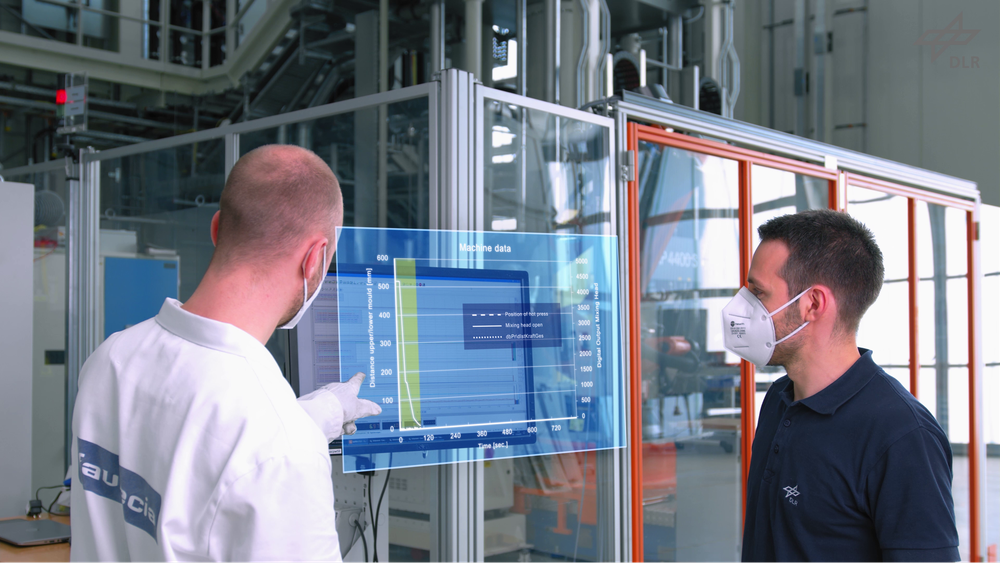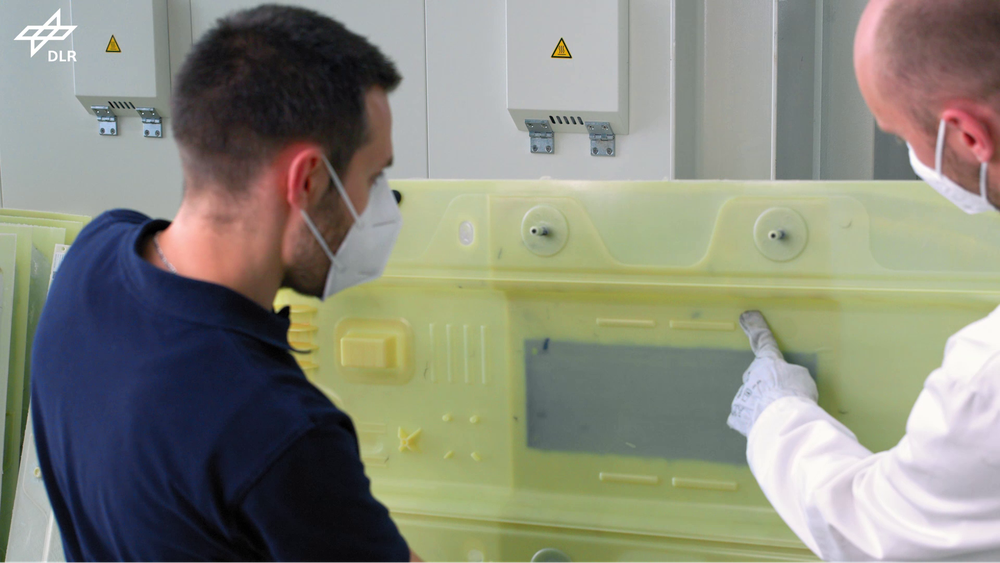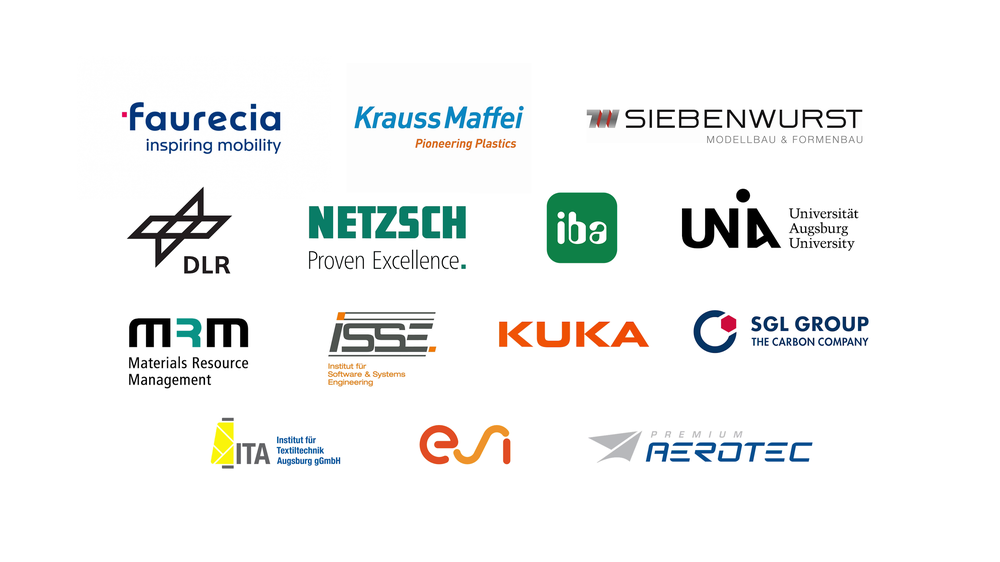CosiMo – Composites for Sustainable Mobility

DLR (CC BY-NC-ND 3.0)

DLR

DLR
The aim of the CosiMo project is to create the research basis for the realisation of sustainable, highly productive and economical manufacturing processes for components in automotive and aircraft construction. For the first time, ZLP Augsburg is also conducting research into electromobility in the automotive sector.
This is to be achieved through the near-net-shape production of structural components in a single process step. To this end, the advantages of an established resin transfer moulding (RTM) process are combined with the advantages of thermoplastic matrix systems in a thermoplastic RTM process (T-RTM). In particular, the still cost-intensive production of FRP components is to be optimised both economically and ecologically. In this context, the main project contents are
- the impregnation of recycled glass fibre fleece materials by in-situ polymerisation of ϵ-caprolactam to polyamide 6 (PA6),
- the insertion of reinforcement structures along the load paths,
- the integration of metal inserts,
- the use of extensive process sensor technology to generate process data and
- the creation of virtual models of the systems and the process using machine learning methods.
The technologies are to be shown on a demonstrator component, the design and development of which is part of the project.
Objective
The Centre for Lightweight Production Technology (ZLP) of the German Aerospace Center (DLR) focuses on the following goals:
- Expansion of expertise in the field of process and component simulation, tool-integrated sensor technology, automated process data-based system control and non-destructive testing of hybrid components
- Capability of the necessary infrastructure (hardware and software) for the process technologies of in-situ polymerisation and machine learning
Project network
From fundamental scientific questions on material properties and process-related material behaviour to the development of sensor-integrated RTM tools and innovative process control, a broad spectrum of physical, chemical and technological challenges will be addressed in the project network. This results in the following main work packages (HAP):
HAP 1 - Tailored Nonwovens
HAP 2 - Reactive Systems
HAP 3 - Intelligent mould
HAP 4 - Data-driven process control
The competences of various partners from the industrial and scientific environment are pooled in the project to address the complex issues (see diagram).

DLR
DLR ZLP work packages
The work content of the ZLP lies largely in "HAP 3 - Intelligent Tool". DLR acts as sub-project coordinator here. At the same time, HAP 3 represents the central interface between basic material characterisation (HAP 1 and 2) and data-based control (HAP 4). The main tasks of DLR described above are dealt with in the following work packages:
Processsimulation
Based on the demonstrator component defined in the project, sub-processes of component production (forming and filling simulation) and properties of the polymerised component (warpage simulation) are simulated. The focus of the investigation is on comparing the results of the simulation and the real process in order to enable a statement to be made on the usability of the simulation tools of the existing in-situ polymerisation processes and to identify approaches for improvements.
Sensor network
The process sequence during component manufacture is tracked using a sensor network of pressure, temperature, ultrasonic and dielectric sensors developed jointly with the project partners. A concept for the arrangement and integration of the sensors in the demonstrator mould is being developed. This enables high-resolution tracking of the process sequence in the complex mould geometry and fulfils all the requirements of the manufacturing process used (e.g. avoidance of defects in the preform, achievement of the required process parameters such as pressure, tightness and homogeneity of the temperature distribution). The aim is to be able to use the sensor information to make a statement about the course of the process and thus about the component quality. This is an important step towards being able to dispense with subsequent quality inspections.
Process and system optimisation
To validate the T-RTM process, an injection moulding system from KraussMaffei Technologies GmbH will be integrated into the ZLP infrastructure and combined with the existing hot press (Wickert). The safety and control concepts for operating the systems will be coordinated accordingly and optimised for simplified operation. Initially, the T-RTM process will be put into operation on a simple plate mould. The system, process and material parameters required for component production will be intensively investigated and optimised to achieve the best possible component quality. Another research objective is the further development of the systems towards automated measurement and simulation data-based process control based on machine learning. Finally, the production of the final demonstrator component is to be supported by training a virtual process model.
Component testing
The final demonstrator component is analysed using a non-destructive testing method tailored to the type of component in order to determine the component properties achieved. Microscopy, thermography and air ultrasound methods are available at the ZLP for this purpose. On the one hand, the strength of the nonwoven-reinforced structural components can be compared with that of conventional structural components. The correlation between process-specific sensor data and component quality is also part of the investigations. On the other hand, the quality of the demonstrator component that can be achieved in the project is essential for assessing the industrialisability of the overall process.

DLR
